Daley Downing's Blog, page 20
January 24, 2019
Blog Tour: The Sentinels Promotion
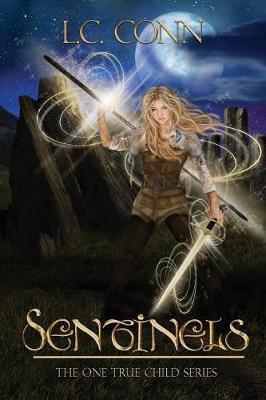
SYNOPSIS
SENTINELS: BOOK 1 OF THE ONE TRUE CHILD SERIES BY L.C. CONN
The world is new, created from a great explosion caused by Chaos in a childish rage. Order is born from the intense light of the explosion, sent as a balance to the Dark One. As the world is created around It, Order realises that It cannot stand alone and creates the Sentinels. Extreme beings with amazing powers, they shape and mould the world, creating creatures and plants to inhabit it. A world of light and love.
Chaos cannot understand why these beings will not bend to his will and worship him. He tries to destroy their work and riles against them. In answer, Order forms a plan. A being; born of two of the Sentinels, with abilities stronger than their own. A child in human form, who must be raised by The People in order to understand their race. The One True Child.
Carling is that child. Raised in the sacred valley in secret, along with her four brothers. Raised by Tarl’a, the Keeper of the Stones and her husband, Mailcon. Her life is quiet and uneventful, until she turns thirteen. It is then she learns of her true identity and purpose on earth. Now she must come to terms with this great change and prospect of finally being able to leave the valley to be taught her skills by the Sentinels. She must do this before Chaos can find her and attack before she is ready.
It is a story of learning and growing, of making mistakes and building on them. It is good vs evil, light vs dark and love vs hate. Carling’s very life depends on the love of her family and he soul-mate. It is also a story about how the world will only survive if we can control hatred and learn to love.
From Chapter One
The rage knew no bounds as he held the world in his fist. He had created it to be his and his alone—for the people he had brought to life to serve only him and his ways. They did not appreciate what he had done for them—they had wanted more, demanded more. Now his rage would be the last thing they knew as he squeezed the world and brought it all to an end, creating a vast explosion that lit up the darkness surrounding him. A pinpoint of light grew and spread, for a moment blinding him, and he roared at his displeasure of it.
The light encompassed all, sending out waves, pulsating deep into the reaches of the universe. Fragments of the old world riding the shockwaves were flung into the depths. Fiery-hot chunks burning brightly spun out of control, attracting rock and minerals to circle them. As the spread of the explosion began to slow, the fragments began to cool. In the centre of the explosion, the bright light continued to shine; from its core, a Being became conscious and rose from the wreckage, glowing brightly with swirls of white light under Its skin.
The Being looked around and found a universe in chaos; order and stability were lost to the winds. It stood and looked out at the remains of a great world, gathering its memories to Itself. One large piece of rock It stood on, circling the star that warmed the ground at Its feet, and the Being began to weep for those who had been destroyed. All the history and the suffering they had endured under their cruel master brought forth great sobs from the Being. The tears It shed dripped down from Its eyes and onto the ground. So many tears for the loss of so many that a river began to run.
The river flowed away from the grief-stricken Being and filled all the low spaces on the rock, collecting into great lakes and seas. The sadness the Being had felt now turned to rage, and It struck the ground with Its fist. The land split, and the great molten core that had not yet cooled swelled up and burst out of the gap It had made. The hot magma created new land and boiled away some of the water, creating a great steam cloud that hung in the sky.
The distant star warmed the ground and condensed the water until the clouds were so sodden that they dropped from the sky. As the rain fell, the sunshine created a perfect form. An arc of light split into seven perfect shades of colour that stood out from the barren and dark landscape. The Being stood on an upthrust of rock and wondered at the amazing vision; It did not see the dark one approaching.
“You are not welcome here; this is my world, my universe. Who are you?” the dark one demanded of the Being. It turned to face the form that approached and recognised him as the being responsible for the turmoil that now reigned over the universe.
“I am from the light. The source of which is due to you, and in this place you shall never have authority. Never again will you oppress a people and use them for your own ends,” the Being said back, Its hands clasped in front of It and a sadness still in Its eye.
L.C. CONN
L.C. Conn grew up on the outskirts of Upper Hutt, New Zealand. Her backyard encompassed the surrounding farmland, river, hills and mountains which she wandered with her brothers and fed her imagination. After discovering a love for writing in English class at the age of eight, she continued to write in secret. It was not until much later in life that L.C. turned what she thought was a hobby and something fun to do, into her first completed novel. Now married, L.C. moved from New Zealand to Perth, Western Australia, and became a stay at home mum. While caring for her family and after battling breast cancer, a story was born from the kernel of a dream. The first book of The One True Child Series was begun, and just kept blooming into seven completed stories.
Massive thanks to Shannon at Reads and Reels for all her work in coordinating this blog tour! Don’t hesitate to check out the author on Amazon if this sounds up your alley!
January 21, 2019
First Ever Owl Crate Post!
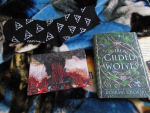

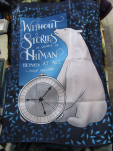
Good afternoon, everybody! Today I have a truly momentous occasion to announce: Last week I received my FIRST EVER OWL CRATE!!! To say I was excited isn’t even covering it. I’ve been wanting to order a subscription box for years, and the cost always turned my face into a wrung out cloth of anxiety. Then this Christmas just past, I decided this would be my gift to myself — and a few weeks later, here we are!
The theme for January is “Magical Artifacts,” and this means it’s right up my alley! The first thing I noticed when the package arrived is how small it is — I was surprised at how much gets tucked into each crate! These owls sure are efficient at packing! And then, once the initial startled moment passed, I was truly awed as I carefully opened each item.
[image error]
The book for January is The Gilded Wolves by Roshani Chokshi (I don’t think I’ve ever read anything by this author!), which has been a hugely hyped YA fantasy book for 2019, and I knew it belonged on my list of “New Releases I Cannot Afford Until 2022″… So to find it in the box was, well, MAGIC.
There’s also this really cool bag that’s a nod to the A Darker Shade of Magic series by VE Schwab (one of those trilogies I haven’t gotten to yet…), and utterly fantastic Deathly Hallows socks (I’m wearing them right now!).
Along with the personal note from the author (awwww), there’s a Gilded Wolves themed luggage tag and pin (thepinisamazing), and although I haven’t traveled in a long time, I can’t wait to go somewhere soon just so I can put that tag on my suitcase.
And check out the Sting wooden letter opener! For Lord of the Rings fans, this is a super neat little item. Then there’s the bracelet that I believe is a nod to Holly Black’s The Cruel Prince (though I could be wrong, but nobody come after me with Sting). Regardless, the bracelet is lovely.
[image error]
So, all of this was adding up to quite the ultimate fangirling experience…and then I unfolded this wall tapestry. (Pay no mind to the fact I’m using it as a duster for the top of my bookcase.) It’s a reference to The Golden Compass, and although that wasn’t my favorite of fantasy series, I was still impressed by the worldbuilding and some of the characters (especially the Northern bears). All in all, an extremely successful first unboxing!
Thank you so much, Owl Crate, for bringing joy into world-weary bookdragons’ hearts!
[image error]
January 18, 2019
The Most Likely Tag
Disclaimer: Utterly and completely stealing this from SM Metzler’s post where I first saw it a couple weeks back.
This is a tag about characters, that I’m applying to my cast from The Order of the Twelve Tribes. (By the way, some of these questions are a bit odd, but I didn’t come up with them, so can’t be held accountable.)
What shall we discover about my fictional darlings? Let’s find out!
Most likely to become a poet: Flynn Driscoll
Definitely Flynn. He’s such a romantic. And he’s well read, so I’m sure he’s familiar with the classic poets.
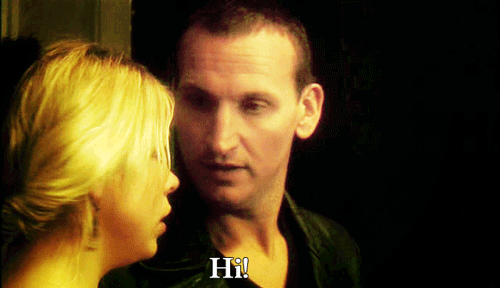
Most likely to dance in the rain: Emma Novak
She has that carefree, good-natured, take-life-as-it-comes spirit. Plus, she loves to dance. And she’s not the kind to get bothered by her clothes getting wet.
Most likely to get punched in the face: Amelia Coeur D’Alene
For those of you surprised by this one (“Hey, wait, isn’t she an angel?!”), remember that she made some decisions that were extremely unpopular or challenged by several other characters (among them, Emma, Avery, Sophie, and the changelings she was looking after). And since most of the time she’s not a very intimidating angel, a disgruntled mortal or halfbreed probably would give her a smack if the chance presented itself.
(And realistically, she’d accept their reasoning for this action, and just move on.)
Most likely to drop everything and become a sheep herder: Avery McKinnon
This technically did happen! Since she ran off to the fey realm before the age of 18 when life in the “regular” world got to be too much…
Most likely to be found in a library: Pretty much all the Scholars.
Happily so.
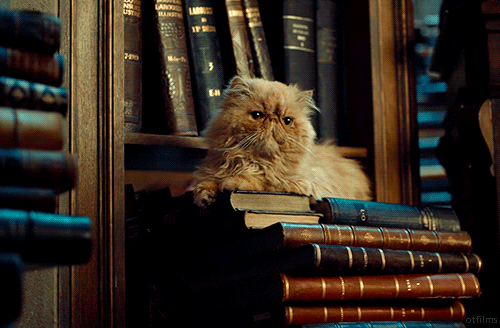
Most likely to say “oops” after setting something on fire: Miles Torrington
Poor Miles, the youngest of the Torringtons, who still has such a strong glamour on his halfbreed self, and therefore doesn’t really know how to use his magic yet. I can totally picture this occurring as part of an attempted enchantment gone terribly wrong.
Most likely to survive a zombie apocalypse: Max Brisby

(He looks nothing like Daryl Dixon, by the way. I came up with the character before I was introduced to this everlasting hero.)
Max is a veteran Hunter who comes from a Scholar family. This means he’s adept at using a variety of weapons, hiding from monsters, working long hours, thinking on his feet, finding obscure information, and taking care of minor wounds/injuries with little outside help. He’d absolutely make it to the other side.
Most likely to fake their own death: The Nephilim
That’s because they already have. This is an old trick of the fallen angels, in the hopes of evading detection by the Order or their enemies.
Most likely to die and haunt friends: Sophie Driscoll
Though she wouldn’t do it out of any malice or spite. She’d want to know what was going on with her family and friends, how they were doing, what they were up to. (And if they lost something, the chances are very high she’d retrieve it and put it somewhere they’d be sure to see it. That’s how she rolls.)

January 15, 2019
Mini Reviews: Fellow Indie Authors!
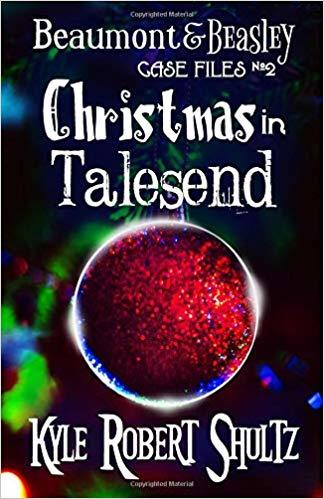
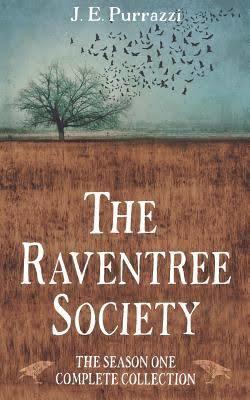

Good morning! The title of this post gets right to it! Today I’ll be reviewing two indie author titles I recently read, and previewing one that I’ll be featuring in the near future!

Christmas in Talesend by Kyle Robert Shultz
This was actually released last Christmas season, but I only got around to reading it (ahem, sorry, everybody) this year (2018). Anyway, it was all so worth the read, regardless of time frame compared to original publication. These holiday stories are so charming and fun, all packed with Shultz’s trademark humor and wit, as well as plenty of heart, and more than enough reference to past events in the Afterverse and foreshadowing towards things likely to come up in future books to please even the most pedestrian fan. This is a lovely, simple, straightforward fantasy series — in terms of just being fun fantasy stories based around fairytale retellings — and then it deviously rips your heart out and requires you to buy stock in Kleenex. I’m continually pleased with whatever is produced from Shultz’s pen, and always look forward to more.

The Raventree Society (season 1) by JE Purrazzi
I won an annotated ARC in a giveaway, and this was the first time I’d read something by this Phoenix Fiction Writer, so it was doubly an event! The Raventree Society is about one of those TV shows that go to “haunted” houses and films “encounters” — but in reality, it’s all faked. Until the day it isn’t; until the day the host’s brother crosses perilous paths with a real ghost. This collection of stories was an intriguing, creepy, and unexpected take on this sort of scenario. I was surprised at how gritty the author was willing to be; and for the subject matter of such a tale, it really worked to get across all the powerful and raw emotions the characters were experiencing (as well as highlight the unfortunate tragedy that surrounds sudden death, a fact we like to ignore but would be unwise to forget). Those of you who get jumpy over paranormal thrillers, be forewarned; there’s plenty of suspense and scares and unpleasant description; but Purrazzi used this technique to poignant effect, and not simply for “shock and awe,” so it fits the genre and yet doesn’t cater to some of its more debase tropes. And she’s working on the sequel — so you’d better get reading the first! Just…leave a light on.

The Beast in the Machine by EB Dawson
This is an ARC I was given by the author (the release date of which will probably be confirmed later in 2019), and I am very excited to get to it when time permits. This is a sci-fi retelling of Beauty and the Beast, and no one does twists on sci-fi quite like EB Dawson. So this will be a pleasure to read and review. (I promise I’m getting there, Beth!)
One of my goals for this year is to read more titles by indie authors — toss me your recommendations in the comments!
January 10, 2019
The YouTube Discussion
[image error]
So, many of you are probably aware that there’s this website called YouTube, where you can find EVERYTHING — clips from movies and TV shows, often whole episodes of cancelled or long out-of-production series, extended trailers for upcoming films, music videos, and plenty of original content by contributors who might be your neighbor down the street, or world famous in their own right.
It’s an interesting cultural shift, one that most likely never would have happened without the internet. Remember just 20 to 30 years ago, when your relatives invited everybody over to watch their vacation slides, and we all groaned and grit our teeth and wracked our brains for something polite to say? People came up with excuses ranging from, “I can’t, I’m having my wisdom teeth out,” to, “I’d love to, but I just sat down in this comfy chair.” Now suddenly, random strangers from around the globe put their home videos of their family getaway to Cancun on YouTube, and it hits 15,678 views in less than 24 hours.
The major difference between YouTube and the sharing-of-home-videos-of-olden-days is the fact that YouTube can make overnight celebrities. I think pretty much everyone and his dog knows by now that YouTube will pay people whose channels reach a significant number of subscribers and/or views. It’s not a foolproof instant way to hit a high salary and quit your day job; there are only a lucky few who make it to more than 10,000 subscribers, and fewer still who actually have a million or more people regularly tuning in.
But this is now an established, accepted part of American entertainment, and it doesn’t seem to be going away anytime soon.
And we’re certainly feeding the beast — YouTube is among the top pick for media platforms regarding movie trailers, music videos, original videos, and lots of artists (in traditional corporate contracts as well as indie) release production news via their YouTube channel. The public finds the free features extremely appealing (myself included), and so do indie artists who can’t afford thousands of dollars for a marketing campaign that could reach potentially millions of people.
However, for all that’s good, just like with anything else, the scope and scale of this phenomenon have created some dark sides.
[image error]
For example, there’s no rating system, G, PG, etc., so it’s criminally easy for your 4-year-old to stumble on recorded game play of Doom or Five Nights at Freddy’s. (And for those of you who claim, “Well, parents should be watching their children,” let’s see you stick by that argument when it’s either race to the bathroom or wet the floor, and your misbehaving, headstrong preschooler will climb the furniture to grab the stashed remote while you’re literally indisposed.) While plenty of contributors do keep their uploads clean and family friendly, there are just as many who don’t consider that necessary, nor do they leave a note on their channel that what they post may not be appropriate for all audiences.
Yes, there are parental controls available on a variety of devices, and we don’t have to let our children watch certain things; but as the “parent network,” YouTube should bear some of the responsibility. After all, the major broadcasters — NBC, PBS, FOX, HBO, etc. — either relegate more mature viewing to hours when small ones are in bed, or they advertise all over the place that particular shows aren’t meant for those of us under age 18. We genuinely can’t say we weren’t warned about The Walking Dead or Game of Thrones.
YouTube doesn’t appear to have the same concerns about their viewers that traditional TV networks do. The trad folks are very aware of lawsuits and fines and even threats of jail time. And, yes, they’re doing “the right thing” primarily to keep their business earning money; but at least they’re following a code of values that most of us feel pretty good about — and if we don’t, we always have the option not to watch.
Do we have the option to block or turn off YouTube as well? Of course. Though with this platform becoming ever more prevalent, that’s growing slightly difficult.

Because YouTube is now featuring many “regular people” contributors who have hit it big on their platform, children especially are very attracted to the “kids just like me” they see in a lot of these videos. One of Muffin’s favorites is Ryan’s Toy/Family Review, which is run by an Asian-American family in California, that has gone from posting 10-minute videos of their son playing with new toys to a multi-million-dollar empire of several channels on YouTube, a line of toys and clothing being sold at major retailers, and enough income for the parents to quit their jobs and build a new house. Yes, you read all of that right. As a parent myself, I have some serious moral qualms about what this level of fame at such a young age (the “star,” Ryan, is only 7 years old!) might do later in life, but I’m evidently in the minority. Lots of families are coming up with concepts for their children to film and upload, and actively help them do so. The hope, I’m sure, is that one day they all end up with a similar situation to Ryan.
All Muffin knows about Ryan is that the kids are playing with lots of fun toys and seem to be having a blast, and there’s no swearing or violence or anything that Mummy finds objectionable, so he is allowed to watch it as often as he wants.
And when faced with the alternative of something horribly inappropriate, I know I will keep letting him choose Ryan.
I’d be lying, though, if I didn’t add that I pray this family knows what they’re doing.

What happens if, one day, YouTube executives wake up and decide they don’t need certain channels anymore? What happens to the celebrity families who have now made this platform their career and sole form of wages? How hard would the transition be back to an “average” lifestyle? For the kids as well as the adults?
And, as a child of the 1980s, I remember all too well hearing about former “child stars,” young actors and actresses and musicians that my generation grew up with and admired, getting arrested or checking into rehab, again, or dying from some tragic, preventable occurrence. In another decade or so, will that be the fate of the current YouTube-famous tweens with 1.1 million subscribers?
Unfortunately, only time will tell. But if we hit the year 2025 and all of today’s YouTube kid stars are happily married with a rescue dog and tons of security guards around their inground pool and giant Lego playhouse, then I’ll thank God.

I let White Fang start his own YouTube channel a couple of years back, and it was mostly to post videos of himself playing Minecraft to share with his friends. He has around 200 subscribers, last I knew, and while he hasn’t updated it in a long time, it still exists, and he may go back to it one day. He’s proud of what he did accomplish, in terms of learning how to use his camera to film the videos, upload them, and be brave enough to share his passion with others.
He’s also found some of the most inspiring and talented individuals by getting involved with the Minecraft and Warriors fan communities on YouTube. Captain Sparklez, anybody? TryHardNinja? And Rainimator has taken the Minecraft community by storm (his work even inspired a character White Fang helped me design for The Order of the Twelve Tribes world.)
And many famous YouTubers are kind and generous; ToyLabTV (they make Jurassic Park styled less-scary dinosaur videos for younger kids) recently hosted a family whose sick child’s “wish” (through the Make A Wish Foundation) was to film a video with them. (Just thinking about that gets me choked up.)
So, YouTube itself is far from evil. But in a world that didn’t even imagine it would be in all our homes until, suddenly, it is, I think we’re still in the infancy of learning just how all this may go.

January 7, 2019
To Dream the Blackbane Blog Tour
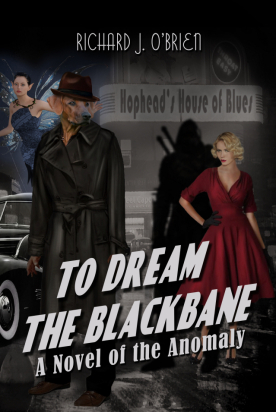
Hello, everyone! Today I’m helping out Shannon at Reads & Reels with her blog tour for To Dream the Blackbane by Richard J O’Brien. First of all, big thanks to Shannon for providing the materials and coordinating all of this and many other blogging events!
To Dream the Blackbane
Publication Date: December 29th, 2018
Genre: Fantasy/ Urban Fantasy
A cosmic event in 2015 fused Earth with the faerie realm. Scientists referred to the event as The Anomaly. A byproduct of The Anomaly was the advent of hybrid beings—people who became mixed with whatever animal or object was closest to them the moment the event occurred. Humans, or pedigrees, soon relegated fairy refugees and hybrids into ghetto zones in large cities.
Seventy years later, Wolfgang Rex, a second-generation hybrid—part human, part Rhodesian Ridgeback—is a retired police detective who runs a private investigation business in Chicago’s Southside. It’s a one-hybrid show; though Rex couldn’t survive without his assistant, the faerie Sally Sandweb.
One night, two vampires visit Rex and offer him a substantial reward for the recovery of a stolen scroll. Later that same evening, Charlotte Sweeney-Jarhadill, a pedigree woman from Louisiana, visits Rex and hires him to exorcize the headless ghost of a Confederate soldier from her home.
To complicate matters, the private detective ends up falling for Charlotte. Meanwhile, the vampires demand results in the search for the missing scroll. When Rex’s assistant Sally goes missing, he must stay alive long enough to find her. Charlotte and the vampires, however, have other plans for Rex.
MY THOUGHTS:
Well, this was quite interesting. A genre mashup of noir-film-inspired private detective fiction and popular paranormal lit, this ebook doesn’t hold back on the tongue-in-cheek sexual humor, criminal-and-crime-action sort of tropes that are often featured in the first genre, as well as a rich mythological background from the second. The cast includes everything — faeries, orcs, ogres, animal-human hybrids, gargoyles, vampires, ghosts, nasty evil spirits from other dimensions. The author packs in a ton of well-laid-out backstory and worldbuilding that draws on a number of real-world legends and lore.
The characters are a little cliche, but mostly likable, and Wolfgang is a protagonist you can cheer on (and hope the vampires, or ghosts, or orcs, or anything else, don’t do him in). The blending of legendary creatures into a near-future urban-environment Earth was well-done.
Parts of the narrative included rather foul language and overt sexual references (just a note for more conservative readers), but it wasn’t consistent throughout. The paranormal/paranormal crime scenes (which was a lot of the story) did get a little graphic; not to a level that I couldn’t stand, however. My only major issue with this text is my usual — it carried on several pages longer than I felt was completely warranted.
To Dream the Blackbane is, overall, a fun and intriguing ride, and I do truly hope that for those whose cup of tea is such a unique tale, they’ll give it a try.
(There’s a giveaway for the ebook happening, too!)
About the Author:
Richard J. O’Brien is a graduate of the Fairleigh Dickinson University MFA in Creative Writing Program. Richard’s novels include Under the Bronze Moon, Infestation, and The Garden of Fragile Things. His short stories have appeared in The Del Sol Review, Duende, Pulp Literature, The Dr. T.J. Eckleburg Review, Weirdbook, and other magazines. Richard lives in New Jersey, where he teaches at Rowan College at Gloucester County and Stockton University.
Giveaway!
For your chance to win a copy of To Dream the Blackbane, click on the link below! (Sorry, North America only!)
http://www.rafflecopter.com/rafl/display/0e7c6a8f55/
January 1, 2019
2018 vs. 2019: Plans, Aspirations, and Realistic Expectations

2018 was the year of setting the bar high, and continuing to jump. But a lot of the time, I didn’t hit the mark, or I got close and then slid down the wall. Yeah, I hit the wall by late summer, and I began to realize that changing priorities was probably in order.
2019 will, therefore, be the year of setting the bar low, and then being pleasantly surprised if I go further than my planned achievements.
In Writing:
2018: Release 3 books, build my own creative writing consulting business, get the rest of my outlines ready to draft
2019: Hahahahahahahahahahahaha. Ha.
Let’s get one book completed, polished, beautified, and out into the wild. I’ve already selected which WIP it shall be. And I’m devoting myself to it utterly until the writing is finished. And then I’m sending it to an editor, because I’m in a super-critical mind frame when it comes to my own work these days, and a fresh set of non-overly-judgey eyes will do wonders for it.
I’m also not yet equipped to deal with the U.S. tax code or all the rules of having one’s own official business. Being a freelancer serves my current purposes much better. So I’m taking on the random consulting venture as I find it here and there, and I’m happy when I can help somebody.

In Reading:
2018: Read at least 50 books (all new, no re-reads), review at least 80% of that, and only read authors/titles recommended by bloggers
2019: HAHAHAHAHAHAHAHAHA. HA!
This is not to say (not at all!) that bloggers’ opinions or recommendations don’t count or aren’t useful. They totally are. But here’s what happened to me too many times to keep track of: I tried a book based *solely* on the above criteria, and it flopped for me — HARD. I just didn’t like the style, or the content, or the cliches — or all of these things. For traditional publishing, especially in YA and fantasy, 2018 appeared to be the year of tropes and genres done to death — there was just so very little that truly excited or engaged me. And while I wanted to support my fellow indie authors more, I simply didn’t have the funds to do so.
But the frustration I faced slogging through recycled plots, unlikable characters, overblown, unnecessary melodrama, and inaccurate “historical” fiction overrode whatever my reasons were for making these selections.
So, in the next 12 months, I will be concentrating a lot more on re-reads I’ve been meaning to get to, new-to-me indie authors, and tried-and-true genres. This means I probably will “miss” a fair number of new releases that could, honestly, be very good. But I am beyond happy with this decision. The alternative is just not worth my agony.

In Blogging:
2018: Blog about less topics, have a consistent posting schedule
2019: Blog about whatever the heck I want, whenever I have the time
Yes, this space is a major part of my author platform, and, yes, I need to be here at least somewhat regularly to maintain readership and keep up with my tribe. However, something I’ve discovered about your online tribe — they will be there, even when you haven’t been around lately. It’s just plain polite to let people know, if you can, that you won’t be posting as much as usual; but the people who are always supporting you continue to do so regardless of what’s going on in your life.
Also, there are too many topics I want to explore and discuss to limit myself, and bringing new subjects to your readers actually increases one’s reach, not the opposite. So expect a wide variety of discussions and thoughts here in the near future!

December 29, 2018
Bookdragon New Year’s Resolutions (Guaranteed Not to Fail!)

As long as you follow these instructions.
Don’t blame me if you stray from the path.
Common Resolution 1: Tackling that TBR.
Step 1: Don’t add anything new to your TBR until December 2019.
Step 2: Spend the next 11 months reading books you already own, have requested from the library, or as ARCs.
See how easy that was? Your wallet, your shelves, and your family will thank you.
Acceptable rule-breakers: You find out about a 2019 new release from a favorite author that you didn’t know existed; a friend lends you a book you’d feel guilty holding onto for an entire year; the book club you’re in features a title you don’t currently have or had even intended to go near.
Common Resolution 2: Review books in a polite amount of time.
Step 1: Set a deadline for when you need to have certain titles read by.
Step 2: Read said titles.
Step 3: Write said reviews and post them or schedule posting in advance.
Hints on how to make this stick: Don’t request more than one ARC a month; don’t tell more than one person a month you’ll write a review; don’t commit to reviewing *every* *single* *book* you finish. And always, ALWAYS, refer back to the Ultimate Rule on how to control your TBR.
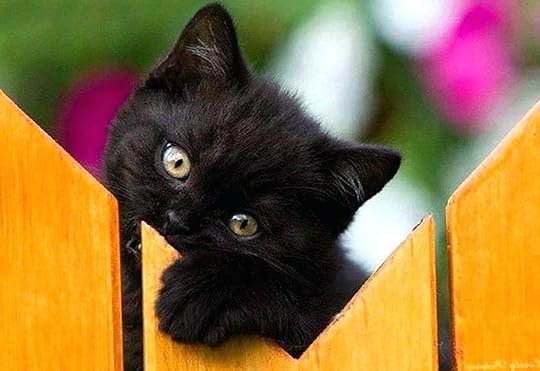
Common Resolution 3: Complete your WIP and get it on Wattpad/sent to an agent/self-published
Step 1: Type these words into your 62,845K word total manuscript: THE END.
Step 2: Find beta readers you trust to give tactful but beneficial feedback.
Step 3: Engage an editor or Critique Partner (CP) you trust to put said feedback into action.
Step 4: Do the dang editing. Don’t procrastinate. DON’T STRAY FROM THE PATH, YOUNG PADAWAN.
Step 5: Post on Wattpad. Send to agents. Or upload to a self-publishing website and press Enter.
Okay, this one I’m oversimplfying, I know. But, seriously, all you aspiring writers out there, GO FOR IT! The worst that will happen is that you determine this venture didn’t pan out. But publishing or becoming published is the ultimate Shroedinger’s Cat: You will absolutely never know what would have been if you don’t try.

Less common resolutions include: Spending less time on social media, reading less hyped books, trying more new authors, and branching out into other genres.
My suggestions for all of these are so simple you’ll wonder why you didn’t think of it yourself: Do them.
In all seriousness, though, I really hate to see what the competitive nature of book blogging has done to bookworms who just love to read. Not that I think we should do away with book blogging or anything that extreme — I owe SO much to my beta readers and reviewers and social media followers. But I truly believe that our biggest, and most acted on, resolution this year should be to go back to a love of the written word as the primary reason for doing all of this. It literally DOESN’T MATTER how many books we read in one year, how many ARCs we got approved for, how many reviews we posted, or how all of that compares to other bloggers. We’d do quite well to realize that.

December 25, 2018
December 15, 2018
Year-End Wrap-Up (WHAT. Just, WHAT.)

I could just as easily call this post, “Welcome To Your Weekly Dose of Cute,” as adorable animal pictures seem to soften the blow of just about anything. Including the stunning, harsh, cold realization that yet another year is coming to a close — and you have no idea where most of it went.
A while back, I announced that I was officially dispatching agents to discover who had stolen approximately 37% of 2018 — because I swear calendar pages never turn that fast by themselves. I’m guessing that those I sent out fell victim to this same curse or villain, as I have yet to hear back from them. Shame.
However, despite losing accumulated days and not being very happy about it, I did accomplish and learn things in 2018.
Important tidbit to remember:
I lost a fair amount of free time to being very unwell, especially in the winter and spring. After suffering with stomach and back pain for most of 2017, I was finally diagnosed with endometriosis, which is a difficult and not-well-understood condition. So I can’t blame my lack of productivity in certain areas on anything other than legit being ill.
The only good thing about getting a diagnosis is that I can at least receive some sort of treatment, although I haven’t yet found a lot that concretely works. Predicting a flare-up is about impossible, so preventing one is a crapshoot, at best. So I can’t beat myself up for having times when I simply did not feel up to doing anything.
Major lesson worth sharing:
Comparing oneself to others, whether it’s in numbers of reviews, sales, publications, blog traffic, or anything else, is a sure, slow descent into madness. There is nothing wrong with the fact I only released one new title this year, or that I hit writer’s block on a couple of my planned WIPs, that I opted out of NaNoWriMo, or that I still cannot figure out how to stop Toby jumping up where he’s not supposed to. None of this means I am not successful or well-liked or appreciated.
Is it tough regardless that I didn’t meet some of my goals for this year? Yeah, it is. But I have also learned I am not the sum of my goals.

Truths I had no idea even existed:
There are little things you can do online to make a bit of desperately needed cash. Such as taking surveys on advertising campaigns. Yup, it sounds hokey, but corporations will pay to hear your opinion. Not much (I gave this a whirl this fall, and in more than 2 months, I made less than $100). But is this a good (non-scam) option to know about when you’re broke? Sure.
There are also organizations that will give artists money to exhibit their work, teach a seminar, or share an artistic discipline with the community. You can enter contests, apply for grants, and sign up as an independent contractor with local non-profits that support the arts. Again, it isn’t guaranteed income, but it is absolutely worth going after.
Knowing when to let go:
One of the most difficult and most vital decisions I made to my author platform and my personal life this year was removing myself as a reviewer from Goodreads. My published titles — and all the reviews readers have kindly written of them — remain on that website, but I am no longer an active participant.
And it has revolutionized how I feel about reading — how quickly I finish new books, whether or not I review them, in fact whether I pick them up at all. Yesterday I checked two books out of the library that I’ve never heard of, that I may or may not return unread, and I don’t even care. The possibility of discovery, of not getting invested in liking a certain title that’s been hyped by social media, is more motivating than the fear of missing out, or even the excitement of stumbling on a new author. The joy of not giving a dang feels invaluable.

It’s about who you’re with:
This year, I was not feeling the gear-up to the holiday season, anyway; then my Thanksgiving got thrown for a massive loop, and the short version is: it was terrible. Now I honestly have no requirements for Christmas, except that somebody remembers to buy Muffin toys (that’s already in the works), and that my family is all together. (And, thank God, that one should be taken care of as well.)
Hold on to the impossible dream:
Not being able to go to Realm Makers this summer was a real downer for me. I so wanted to be there to meet all these lovely people I’m in contact with through the year, whose support and encouragement of me as an author, a blogger, a person have been so constant and precious. But too many things made it not happen. Money, needing childcare, being nervous about flying, not being sure how my health would be in July. And I was sad.
But I should not, ever give up on trying to attend next year. Or the year after, or the year after that. A no once doesn’t automatically translate to a never.

Know your limits and stick to them:
Setting unrealistic goals or even to-do lists don’t really make you feel better about yourself. Having 3 things to check off, and getting 2 checked, is pretty freaking amazing, let me tell you. No matter how much you think you need the status/prestige/money/whatever, before you take on that new project or possibility, take a few serious moments to evaluate your priorities, how they’d be affected, and if the outcome is really what lines up with your long-term plans.
And don’t let someone guilt-trip you into taking on too much. You will be a much more effective — and happy! — parent/employee/friend/family member by refusing to tackle it all.
So, that’s about it for me right now! I’ll be around on social media, but between now and New Year’s, I’m not sure if another formal post shall be forthcoming. My coveted spare time is being divided between family, the holidays, and writing. See you on the dark side of the moon, moths!
MERRY CHRISTMAS AND HAPPY HANUKKAH!

Daley Downing's Blog
- Daley Downing's profile
- 36 followers




